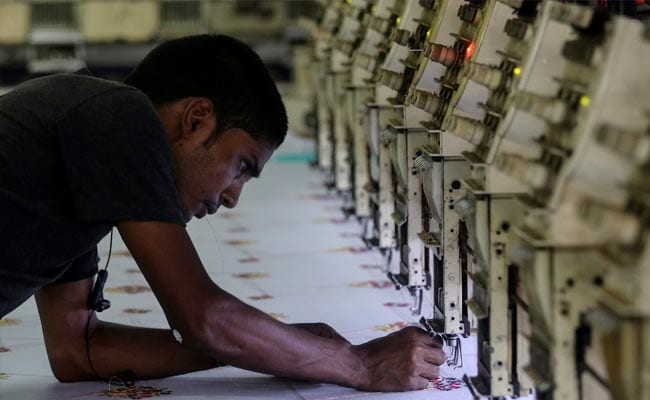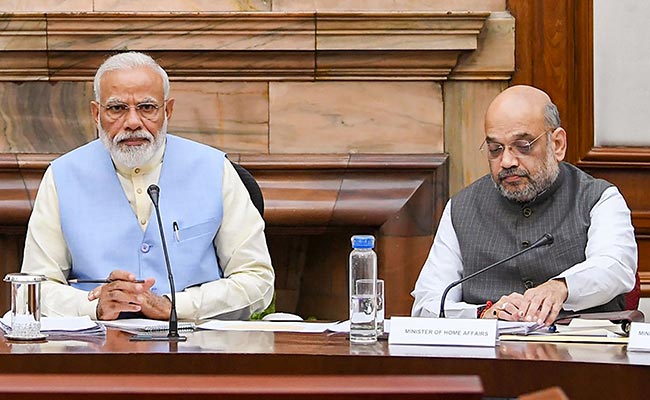NEW DELHI;It was not the best of weeks for Narendra Modi and the Bharatiya Janata Party. Two central planks of its all-conquering image were severely eroded: the notion that the economy is in safe hands with Modi in charge, and the idea that the BJP is some sort of unconquerable political juggernaut that can never be out-maneuvered by its opponents.
We have heard the phrase “fastest-growing large economy” so often that it is possible that some government minister might even trot it out as a reflex at some point soon, although growth has now dipped below five per cent, and it looks like the government will miss targets it set for itself just a few months ago. What is particularly problematic for the government at this point, politically, is that it has nobody it can easily blame this slowdown on. It is too late to blame the United Progressive Alliance – though I am sure someone will try. Nor is it like the post-demonetization slowdown, which could be sold, inaccurately, as necessary pain to purify the economy of the evils of black money or corruption or counterfeiting or possibly just cash. No, this slowdown is clearly visible to be the fault of economic mismanagement. All that the ruling party can say at this point is to ask for people to keep trusting the Prime Minister, even though it looks increasingly clear that his government isn’t certain what to do next.

India’s GDP growth slowed to 4.5 per cent in the July-September quarter, worse than economists’ estimates, official data showed on Friday
The only real economic challenge to Modi’s popularity in his first term was rural distress and a lack of jobs. The first was addressed by a sharp turn towards greater welfare spending, the second by the argument that people should set up their own businesses or look for jobs. But neither of these will be effective for much longer. In the first place, the government is close to running out of money to expand welfare. And nobody is going to want to set up a business when the economy is stuttering – who, precisely, would want to be an entrepreneur in this climate instead of having a steady job?

PM Modi with Home Minister Amit Shah
The last answer that the BJP has when it is tasked with its mishandling of the economy is the assertion that the economy must be fine because the party is winning elections. What’s closer to the truth in many cases of course is that even when it loses it wins. Which brings us to the fiasco in Maharashtra. Much has been written about it already, so there’s no need for us to revisit how unedifying a spectacle it was: the naked lust for power of the Shiv Sena, the disarray of the Nationalist Congress Party, the opportunism of the Congress, and the arrogant overreach of the BJP. And while nobody came out looking good, the BJP’s image suffered the most. Not because it’s behaviour was the worst, but because the public will condone illicit backroom deals only if they are eventually crowned with success. I would love to believe that the Indian public is deeply moralistic and upright and would frown on buying legislators and splitting the opposition in order to stay in power. But recent history shows that this is seen as immoral but clever, and the latter overrides the former in the land of Chanakya. But that public forbearance lasts only as long as you actually appear clever. And in Maharashtra, the BJP looked anything but clever. It trusted Ajit Pawar, underestimated Sharad Pawar, and backed Uddhav Thackeray into a corner. Even when things looked blackest, its partisans would insist the high command had some superlatively brilliant last-minute move in mind – right up till the point it became clear that they didn’t. And let’s not forget none of this would have mattered if it hadn’t faced unexpected reverses in the assembly elections in the first place.

BJP and Shiv Sena fell out over the Sena’s insistence on a “50:50” arrangement in which it would have chief ministership for half the term (File photo)
The new BJP, unlike the old, is maximalist. It does not intend to leave any space for an opposition, even for regional parties. The Shiv Sena may morph into something else in time but it is still ideologically similar enough to the BJP to be a natural ally. But the problem is that the BJP can not tolerate equals – even a regional party in its home state must pay obeisance. Beyond a certain point, this strategy of cornering regional parties is not going to continue to work. If the BJP has tasted the power of Hindutva politics, mobilisation around regional identity is in some places as easy. Nor, as the history of the Congress shows, is a high command culture always conducive to finding the right candidates at the right time. Mamata Banerjee in West Bengal showed last week that both factors are hampering the BJP’s advance in her state. On the one hand, the consolidation around the Trinamool as the defenders of Bengali identity allowed it to expand into areas it had never won before – rather than the BJP consolidating the anti-Mamata vote, it turned into the Trinamool mopping up the non-BJP vote. What didn’t help was the fact that the candidates on the ground, and the state BJP more generally, seemed out of touch. State insiders claim that the best candidate to take over from state president Dilip Ghosh in his Kharagpur constituency was sidelined. When candidates are selected by fiat from on high, this is what happens. Of course the Bengal BJP might well bounce back – particularly if the new Citizenship Bill passes soon – but the limits of centralised control are clearly evident.

Mamata Banerjee’s Trinamool Congress scored a three-on-three, winning all three seats in assembly by-polls in West Bengal
Neither Maharashtra nor this sharp deceleration in growth may be a historic turning point. But it has certainly opened up chinks in the BJP’s armour, which seemed to be impregnable as recently as May. The party’s greatest asset is, in the end, the common notion that it is remorselessly efficient – whether about Pakistan, winning elections, or improving the economy. The last two may no longer be as true going forward. I suppose we will be hearing even more about Pakistan soon.
(Mihir Swarup Sharma is a fellow at the Observer Research Foundation.)
Disclaimer: The opinions expressed within this article are the personal opinions of the author. The facts and opinions appearing in the article do not reflect the views of NDTV and NDTV does not assume any responsibility or liability for the same.
